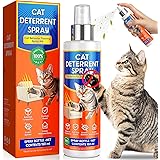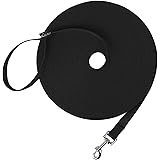As a cat owner, you might wonder if cats can eat bananas. Cats need animal products for nutrients, but can they have bananas as treats? The Clinical Nutrition Service says bananas are safe for cats. But, it’s key to follow cat food and nutrition guidelines before giving bananas.
Cats can have bananas, but treats should not be more than 10% of their daily calories. For example, a cat eating 250 calories a day should only get 25 calories from treats. A medium banana has about 110 calories, which is too much for most cats. Knowing about feline nutrition is important for your cat’s health.
Before giving bananas to your cat, think about their needs and health risks. Cats are often picky and might not like bananas. As a responsible owner, focus on your cat’s health by giving them a balanced diet.
Key Takeaways
- Cats are obligate carnivores and do not require fruits or vegetables for their health.
- Bananas are considered a non-toxic food for cats, but should be given in moderation.
- Treats, including bananas, should not account for more than 10% of a cat’s daily caloric intake.
- Cats can eat bananas, but only in small amounts as they are high in carbohydrates.
- Understanding feline nutrition is vital to ensuring your cat’s overall health and well-being.
- It’s essential to prioritize your cat’s health and well-being by providing a balanced diet that meets their feline nutrition requirements.
- Consult with your veterinarian before introducing new foods, including bananas, to your cat’s diet.
Understanding Feline Diets
Cats are meat-eaters by nature. They can’t digest plant-based foods well. So, their dietary needs for cats focus on animal protein and fat. When looking at safe fruits for cats, remember to give them in small amounts.
What Do Cats Typically Eat?
Cats eat a lot of animal protein and fat. They need little carbs. Their natural food is small animals like mice and birds, which give them the nutrients they need.
The Nutritional Needs of Cats
Cats need a special diet that’s balanced for them. A cat’s diet should have:
- High-quality protein from animal sources
- Moderate amounts of fat for energy
- Limited carbohydrates, as they can be difficult for cats to digest
Knowing what cats need and giving them the right food helps them stay healthy. It ensures they live a happy and healthy life.
Can Cats Eat Fruits?
It’s important to think about what cats need to eat and what might be harmful. Fruits can be good for cats, but only a little bit. Cats mainly eat meat because they are meat-eaters. Fruits should only be about 2% of their diet.
Choosing the right fruits is key for cat health. Safe fruits for cats include bananas, watermelon, and strawberries. But, grapes and citrus fruits are bad for them. A good amount of fruit for cats is about a 1-inch piece each day.
Here are some fruits that are safe for cats to eat in moderation:
- Bananas
- Watermelon
- Strawberries
- Blueberries
- Cranberries
Make sure to take out seeds, stems, pits/cores, and rinds from fruits. Also, diabetic cats should not eat fruits because they have too much sugar.
Knowing what cats should eat helps keep them healthy. A balanced diet with different foods is good for their health and happiness.
| Fruit | Safe for Cats | Portion Size |
|---|---|---|
| Bananas | Yes | 1-inch piece |
| Watermelon | Yes | 1-inch piece |
| Strawberries | Yes | 1/2 cup |
Bananas: A Closer Look
Bananas are a favorite fruit for humans, but can they be good for cats? While bananas aren’t toxic to cats, they have a lot of sugar and carbs. This can cause diabetes and other health problems.
Bananas are full of vitamins and minerals, but they also have a lot of carbs. This can be bad for a cat’s diet.
When thinking about fruit for cats, we need to look at each fruit’s nutritional value. Bananas, for example, have a lot of calories, about 105 per banana. It’s important for cats to follow the 10% rule. This means treats, like banana for cats, should not make up more than 10% of their daily calories.
Some important things to remember when giving bananas to your cat include:
- Average banana length: 6 inches
- Calories per quarter-inch slice of banana: approximately 4.5 calories
- Recommended initial serving size for a cat trying banana for the first time: 1 slice
Bananas can be a tasty treat for cats, but there are risks. These include GI upset and allergies. Always watch your cat’s behavior and health when introducing new foods. If you’re thinking about adding fruit for cats to their diet, talk to your vet first.
Are Bananas Safe for Cats?
Many cat owners wonder if bananas are safe for their pets. The answer is yes, but with caution. Bananas are not toxic to cats, but eating too much can upset their stomach. According to petmd, cats can safely eat bananas in small amounts.
Toxicity Levels of Bananas for Cats
Bananas are not poisonous to cats, with a toxicity level of zero. But eating too many can cause stomach problems like vomiting or diarrhea. It’s important to give cats bananas slowly and in small amounts to watch how they react.
What Happens If a Cat Eats Banana?
If a cat eats a banana, it might get a stomachache, vomit, or have diarrhea. To prevent this, give cats only a tiny piece of banana at a time. As catsjoys advises, don’t make fruits a regular part of their diet. Moderation is key for their health.
Bananas have a lot of sugar, which can be bad for cats’ diets. They also have fiber, potassium, and vitamin C, but these are more beneficial for humans. So, it’s best to stick to balanced, nutrient-rich diets for cats, avoiding bananas and other fruits.
Cats and Digestive Health
When thinking about what to feed our cats, we must consider their sensitive stomachs. Foods like bananas can sometimes upset their digestive system. Research shows that cats may face digestive problems from eating fruits, including bananas, because of their sugar content and potential allergens.
A balanced diet for cats should have little sugar or carbs, less than 2%. Treats, like fruits, should not make up more than 10% of their daily calories. For instance, a cat eating 200 calories a day should only get 20 calories from treats. It’s important to pick safe fruits for cats and give them in small amounts to avoid issues like pancreatitis, diarrhea, and vomiting.
- Consulting with a veterinarian before introducing new foods to ensure safety and appropriate serving sizes
- Choosing fruits that are safe for cats, such as bananas, and avoiding toxic fruits like grapes and raisins
- Introducing new foods, including fruits, in small quantities and monitoring for signs of digestive issues or allergic reactions
By being careful with what we feed our cats, we can help keep them healthy. This includes their digestive health.
How to Introduce Bananas to Your Cat
When you want to give bananas to your cat, think about their cat health and dietary needs for cats. Bananas can be a good treat for cats, but only in small amounts. It’s best to give bananas as treats no more than once a week to keep sugar intake low.
To start, give your cat a small piece, like one slice. Watch for any signs of upset stomach. You can also check out cat food ingredients to avoid for more info on safe treats for your cat.
- They show interest in the smell and taste of bananas
- They eat the banana slices without hesitation
- They seem to enjoy the texture and consistency of bananas
Remember, cats have their own taste preferences. Some cats might not like the sweet taste of bananas.
It’s key to remember that cats need a diet rich in meat. While bananas are healthy, they shouldn’t replace a balanced diet. Always talk to your vet before adding new foods or treats to your cat’s diet.
What Should Cat Owners Avoid?
It’s important to know which foods are bad for cats. While fruits are good for people, not all are safe for cats. Fruits like citrus and grapes can be toxic.
As a cat owner, it’s key to avoid harmful fruits. Choose a diet that’s right for your cat. If you want to add fruit, pick safe options like cooked chicken or turkey.
Some fruits are okay for cats, but only in small amounts. Here are a few:
- Blueberries
- Apples (seedless)
A cat’s main diet should be high-quality animal protein. Fruits are treats, not a main part of their diet. Always talk to your vet before changing your cat’s food.
Knowing the risks and keeping your cat’s diet balanced is crucial. This way, your cat can stay happy and healthy.
| Fruit | Safe for Cats |
|---|---|
| Citrus fruits | No |
| Grapes | No |
| Blueberries | Yes (in moderation) |
| Apples (seedless) | Yes (in moderation) |
Alternatives to Bananas for Cats
It’s key to give cats a varied and balanced diet. Bananas are tasty but high in sugar and should be given sparingly. Luckily, there are many other fruits and treats that are safe and healthy for cats. For instance, strawberries and apples are nutritious and can be given as treats.
Other safe fruits for cats include blueberries, cantaloupe, and watermelon. These fruits are full of antioxidants, vitamins, and minerals. They’re a great addition to a cat’s diet. But remember, fruits should not replace a cat’s regular meals. They should be given as a supplement to their usual food.
There are many other treat options for cats. Cooked poultry, cheese, and green beans are all nutritious and can be given in moderation. It’s important to consider a cat’s individual needs and preferences when introducing new foods or treats. By providing a varied and balanced diet, cat owners can help ensure their feline friends stay happy and healthy.
| Fruit | Safe for Cats | Nutritional Value |
|---|---|---|
| Strawberries | Yes | Rich in antioxidants and vitamins |
| Apples | Yes | Good source of fiber and vitamins |
| Blueberries | Yes | High in antioxidants and vitamins |
Expert Opinions on Cats Eating Fruits
Experts say a lot about cats eating fruits. They tell us that fruits and treats should only be a small part of a cat’s diet. The question of whether cats can eat bananas is common. The answer is yes, but only in small amounts.
Bananas are safe for cats, but they can upset a cat’s stomach. This is because bananas have a lot of sugar and carbs. Cats need a special diet that is high in protein from animal sources.
Vets say it’s important to watch how much sugar cats eat. Cats don’t digest food like humans do. So, while bananas are okay, they should be given in small amounts. This keeps cats healthy and happy.
Testimonials from Cat Owners
Many cat owners have shared their experiences with feeding bananas to their cats. Some cats like the taste and texture, while others don’t care or might feel sick. It’s important to think about what each cat needs and likes when it comes to feline nutrition.
Bananas are not harmful to cats, but they have a lot of sugar and carbs. These can cause problems like obesity and upset stomachs. So, cat owners should only give bananas in small amounts, if they choose to give them at all.
Some cat owners have seen good things happen when they give their cats bananas. They might notice:
- Improved digestion
- More energy
- Better coat health
But, remember, every cat is different. What works for one cat might not work for another. Always start with a little bit of banana and watch how your cat reacts.
When it comes to feline nutrition and safe fruits for cats, it’s best to talk to a vet. They can give you advice on what’s best for your cat.
Healthy Treating Practices for Cats
When it comes to cat diet, healthy treats are key. Cats should mainly eat meat and animal products. These foods give them all the nutrients they need. But, treats like bananas can be okay in small amounts, as long as they don’t make up more than 10% of their daily calories.
For your cat’s cat health, introduce new foods like bananas slowly. Start with small amounts to avoid stomach problems. This way, you can see how your cat reacts to the new food. Here are some tips for healthy treats:
- Limit treats to 10% of your cat’s daily caloric intake
- Choose nutrient-rich foods, such as green beans or sweet potatoes
- Avoid giving your cat foods that are toxic to them, such as grapes or citrus fruits
By following these tips and thinking about your cat’s needs, you can keep them healthy. Always talk to your vet before changing your cat’s cat diet.
Final Thoughts on Cats and Bananas
As we wrap up our look at cats and bananas, remember that moderation is key. Bananas aren’t harmful to cats, but they don’t offer much nutritional value. They can even upset a cat’s stomach if eaten too much. Cats need meat to stay healthy, not fruits like bananas.
Summary of Key Points
Bananas are good for people, but not as much for cats. Cats might have trouble digesting bananas’ sugars and carbs. This could lead to vomiting, diarrhea, or constipation.
For cats that are overweight or have diabetes, bananas’ sugar can make things worse. The peel of bananas also has ethyl acetate, which cats often dislike.
Encouragement for Responsible Feeding
It’s okay to give a small, ripe, peeled banana as a treat sometimes. But it shouldn’t be a big part of their diet. Cats need a meat-based diet to stay healthy.
When giving fruit or bananas as treats, watch how your cat reacts. Adjust the amount to keep their diet balanced. This way, cats can stay healthy and happy.
































































